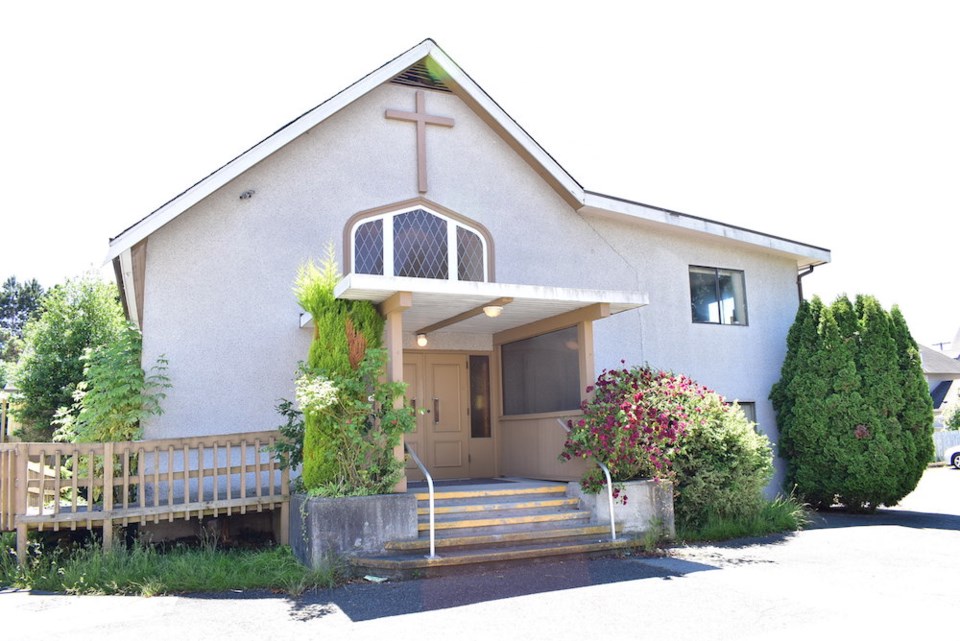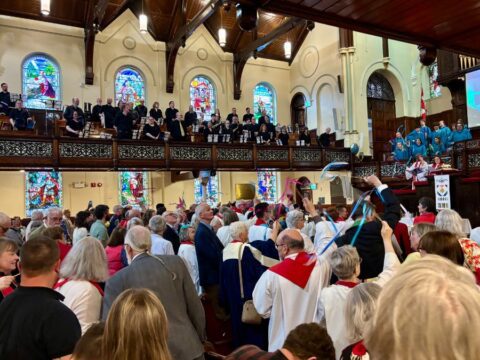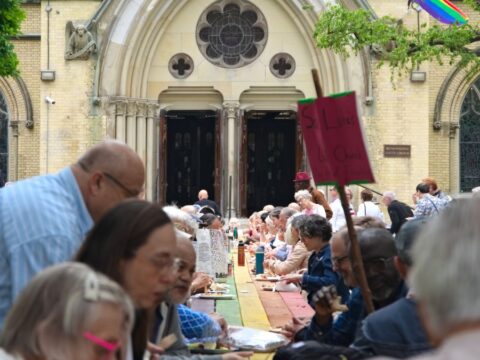Plans to build affordable housing and a new worship space at Brighouse United in Richmond, B.C., have been abandoned, with the congregation instead voting to disband at the end of June.
The church property was recently sold to a private developer for about $15 million, according to Pacific Mountain Region executive minister Treena Duncan. But over $3 million of those proceeds will be used to pay debt owed to BC Housing in relation to the abandoned project, Duncan says.
To recoup some of its losses, the region is alleging in a lawsuit at the B.C. Supreme Court that Colliers International, the firm that managed the redevelopment, “failed to perform” its services “to the standard expected of a reasonably prudent professional development and planning manager.” It is suing Colliers for $700,000 plus damages.
Colliers did not respond to Broadview’s request for comment.
The Brighouse redevelopment had been in the works since at least 2013. The plan was to build 182 units of housing, half of which would be “affordable.”
A subsidiary of the region obtained a pre-development loan of about $3.5 million in April 2018 through BC Housing, according to the agency. Within months, though, BC Housing was advising that loans alone wouldn’t suffice — additional grant funding was necessary for the project to succeed as it was designed.
BC Housing recommended that Brighouse apply for additional grant funding through the Building BC Community Housing Fund, the agency said in a statement. But the fund’s January 2021 deadline passed without an application coming forward, and the United Church “did not have enough [independent] cash equity to contribute to make the project viable for a grant and subsidy,” the statement continued.
The region’s lawsuit alleges that Colliers “continued to present the Brighouse project as viable and fundable through BC Housing” until January 2020. In November 2020, Colliers presented proposals with an “increased funding gap,” according to the lawsuit.
More on Broadview:
- West Hill United grows online amid lingering Gretta Vosper tensions
- The United Church has an ambitious climate goal — but it needs help from congregations
- Union United in Montreal has been a Black community bedrock for more than a century
By that time, all the money borrowed from BC Housing had been spent, but Brighouse was getting no closer to breaking ground.
Rising interest rates and inflation over the last few years have made the project even less achievable, Duncan says. But ultimately, she considers Brighouse to be “a casualty of insufficient government funding.”
Adding to the project’s financial troubles was a congregation that was losing steam as a community of faith, according to Rev. Donna Dinsmore. Brighouse hired Dinsmore as a transitional minister in 2021. Within a few months of joining, she began to sense it might have to close.
Through a period of discernment, the congregation came to “admit that they were no longer viable as a Christian community,” Dinsmore says.
In the aftermath of the project’s unravelling, Duncan warns that redeveloping church properties is not “a magic solution” for congregations. The end goal might be good, she says, but a redevelopment project “doesn’t come without risk.”
***
Will Pearson is a writer in Peterborough, Ont.















